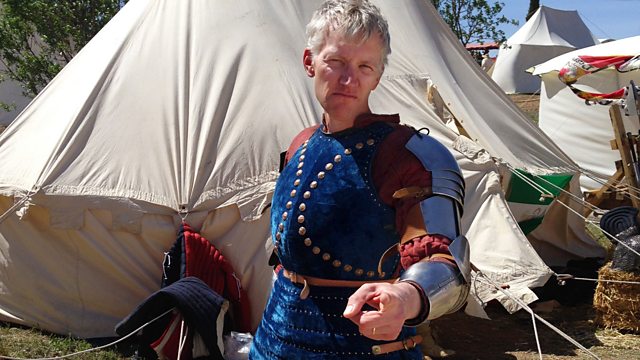08/07/2014
Helen Castor takes the chair for Radio 4's popular history magazine programme, looking at what some are describing as a crisis in our industrial heritage museums.
Is there a crisis in our museums - in particular those that care for our industrial heritage?
That's the view of one academic who fears that the volunteering model adopted by many organisations needs to change. Dr Geraint Coles has a long experience of working on restoration projects such as the Chesterfield canal. He fears that changes in our society means that people are retiring much later than they were ten years ago - so finding fit and active volunteers to help run museums, preservation railways and other industrial heritage centres is becoming more and more difficult.
Making History's Mike Greenwood visits the Bluebell Railway in Sussex to see how they recruit, train and keep their volunteers. Ian Bapty, Industrial Heritage Support Officer for England, and Karen Perkins Director of Arts and Museums at Luton Culture join Helen to discuss the ways they are meeting this challenge
Tom Holland takes the train to Cumbria - or should that be Rheged? He meets historian Tim Clarkson and hears how sixth century poetry has been shaped and re-shaped so that the kingdom it describes is now much, much bigger than it ever was.
Finally, Helen meets Professor Linne Mooney from the University of York to find out how familiarity with the scribes who copied the works of Chaucer as well as government papers, afforded her unique insight into how and why written English begins to supersede French and Latin in the fourteenth century.
Contact the programme:-
Email making.history@bbc.co.uk
Write to Making History, 91�ȱ� Radio 4, PO Box 3096. Brighton BN1 1PL
Producer: Nick Patrick.
A Pier production for 91�ȱ� Radio 4.
Last on
A Crisis in Industrial Heritage?
Ian Bapty’s position was funded by English Heritage as a response to this problem and in Luton, Karen Perkins and her team have started to re-define the idea of a volunteer so that it can be anything from someone who gives up a day to work with the town’s collections to a youngster liking something on Facebook.
If you work in this sector we would like to hear your thoughts on the issue Dr Coles raises.��
Useful Links
��
��
��
��
Making History visited the to find out how it recruits, trains and keeps its volunteer team. ��
Where was Rheged?
Many in the Scottish Borders and Cumbria today believe that Rheged stretched from Glasgow to Chester and maybe right across to North Yorkshire and Northumbria. But, there is no evidence for this, indeed there is very little evidence which points to exactly where this sixth century kingdom was. Tom met up with the historian of the north in the period after the fall of Rome, Tim Clarkson, who argues that it's the paucity of evidence (largely references in the poems of Taliesent) that has created a myth out of history. His best guess is that Rheged was on the shores of the Solway Firth and, like most embryonic states at this time, was relatively small.
Useful Links
��
��
��
��
����
The Coming of English
Helen and Linne discussed why this change occurred - was it because the Lancastrian rulers needed wider support in the country or was it driven by the literary communities commercial desires?
��
��
Further Reading: Scribes and the City of London Guildhall Clerks and the Dissemination of Middle English Literature, 1375-1425 Linne R. Mooney and Estelle Stubbs
Making History is produced by Nick Patrick and is a Pier Production for 91�ȱ� Radio 4
Email the programme making.history@bbc.co.uk
Find us on Facebook
Broadcast
- Tue 8 Jul 2014 15:0091�ȱ� Radio 4
Podcast
-
![]()
Making History
Popular history series where the past connects with the present.


